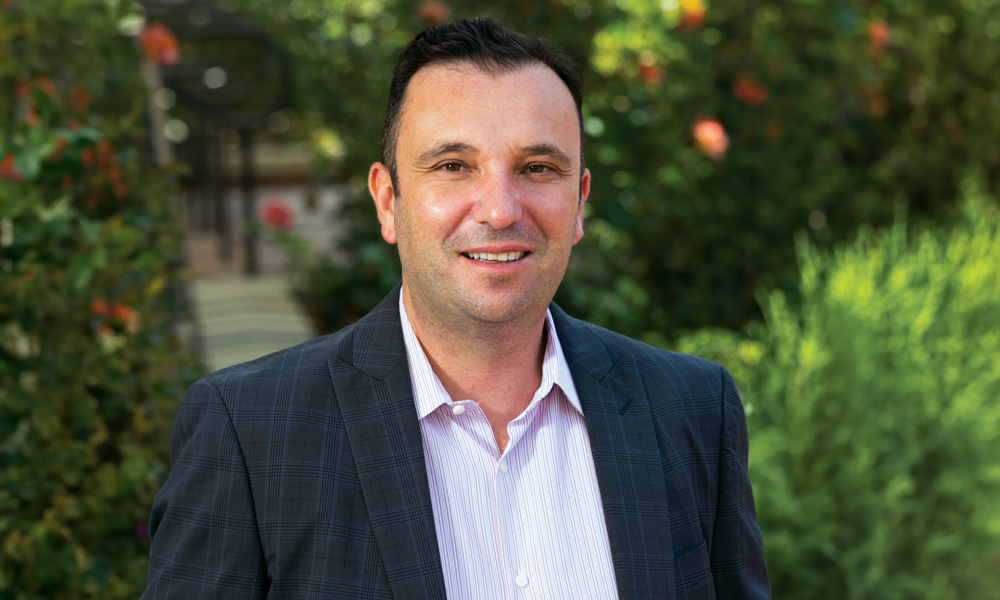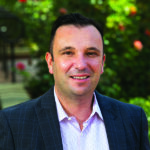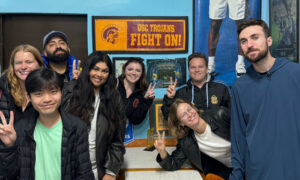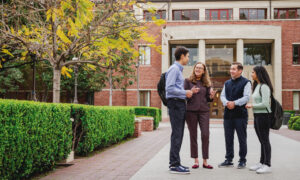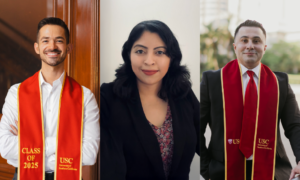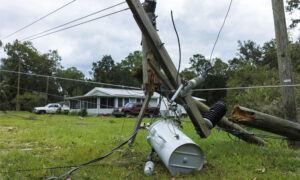You might wonder what Antonio Bento, an economist, is doing at a school of public policy.
Answer: He wants his research to have an impact on policy.
And it has.
In 2018, Bento was the lead author of an article in Science titled “Flawed analyses of US auto fuel economy standard” that took the Trump administration to task for a proposal to freeze fuel economy standards for cars and light trucks, instead of gradually increasing them to lower emissions. Bento’s study noted that the Trump administration had failed to account for $112 billion in benefits from maintaining more aggressive standards set by the Obama administration.
Bento, who is a professor of public policy and economics at the USC Price School of Public Policy, followed up by testifying before Congress to press his point.
“This is an insane rollback from the perspective of the future competitiveness of the U.S. auto industry,” Bento was quoted in Newsweek. “It makes us less and less competitive internationally, and down the road we would lose the share of the international market we would otherwise have if we were to move towards car electrification.”
Although the Trump administration ended up weakening the fuel standards in March 2020, it did not freeze them. More aggressive standards were implemented during the Biden presidency, including new rules issued this month that is meant to push the average efficiency of new vehicles beyond 50 miles per gallon by 2031.
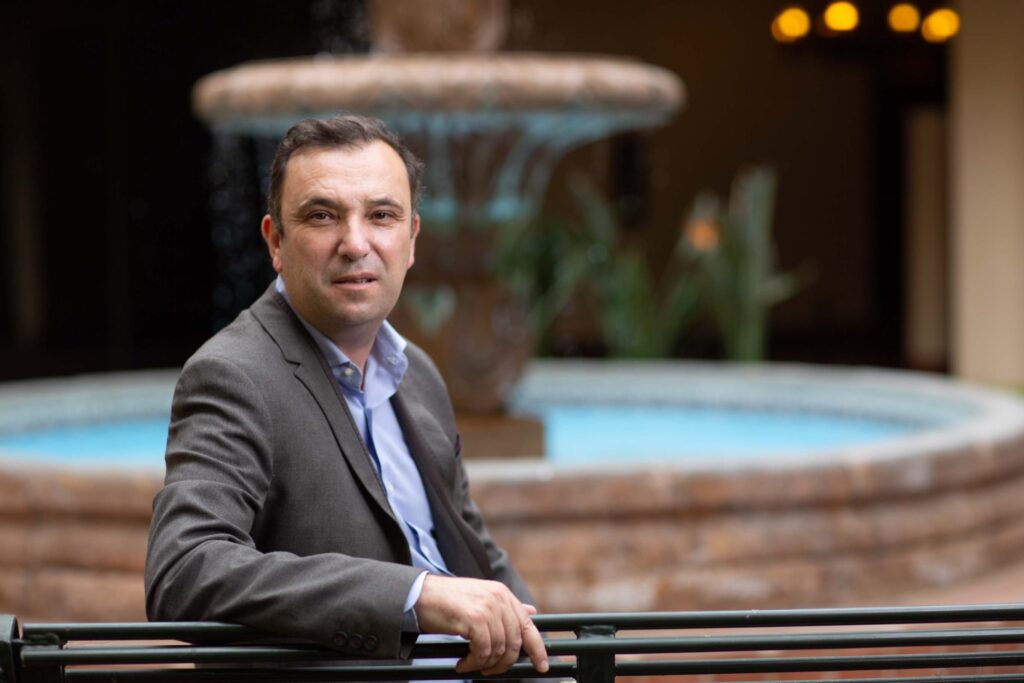
“I’m very proud because I felt that that paper and our testimony in the House was a good input into stopping what otherwise would’ve been a disastrous policy reform,” Bento said.
Bento concedes that there is an element of activism when it comes to arguing for specific public policies before lawmakers.
“There’s long been this discussion about scientists as activists,” the Lisbon native said. “You could also say there’s a discussion to be had around economists and behavioral scientists being activists, trying to present policy makers with evidence-based research. You try to be more dispassionate (than a pure activist), but at the same time, you have your own strong views on how things should be done, right?”
His persistence to show how things should be done based on fact-based research has made him one of the world’s leading economists focusing on the environment, energy and transportation.
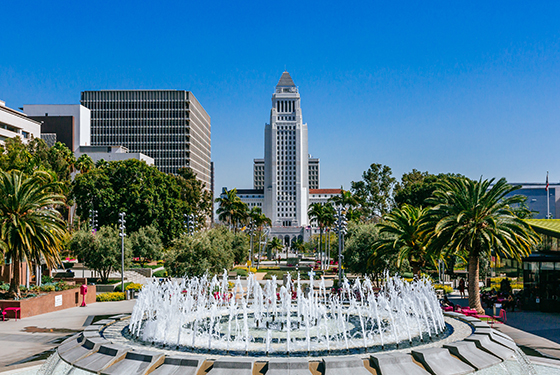
Master of Public Policy
Advocate & Innovate for a More Just World
Effective public policy has the power to disentangle increasingly complex global and domestic challenges. With an MPP from USC, you will have that power too.
Find Out MoreHe has authored more than 175 journal articles that have garnered 6,256 citations. Most recently, his research has focused on the design of policies to prevent additional climate change and the interaction of new environmental policies with the tax system. His expertise in climate change led him to become an author for the United Nations’ Intergovernmental Panel on Climate Change, the world’s leading organization that tracks climate change, its risks and potential solutions.
Earlier this year, Bento and his coauthors won top honors from the European Association of Environmental and Resource Economists for a paper about the role of regulations and policies that unintentionally improve adaptation to climate change and thereby benefit human welfare.
While the paper looked specifically at ozone concentrations to prove its point, the award’s selection committee noted that, “the paper hints at other applications, such as forest wildfire mitigation and water conservation in agriculture, where similar non-climate regulations could inadvertently induce climate adaptation. This research opens new avenues for research and policy considerations.”
Bento is particularly proud of the fact that two of his coauthors were his PhD students. One of them, Noah Miller, is finishing up his PhD at the USC Price School this summer – having previously earned his Master of Public Policy at Price – before going on to a post-doc program at Carnegie Mellon University.
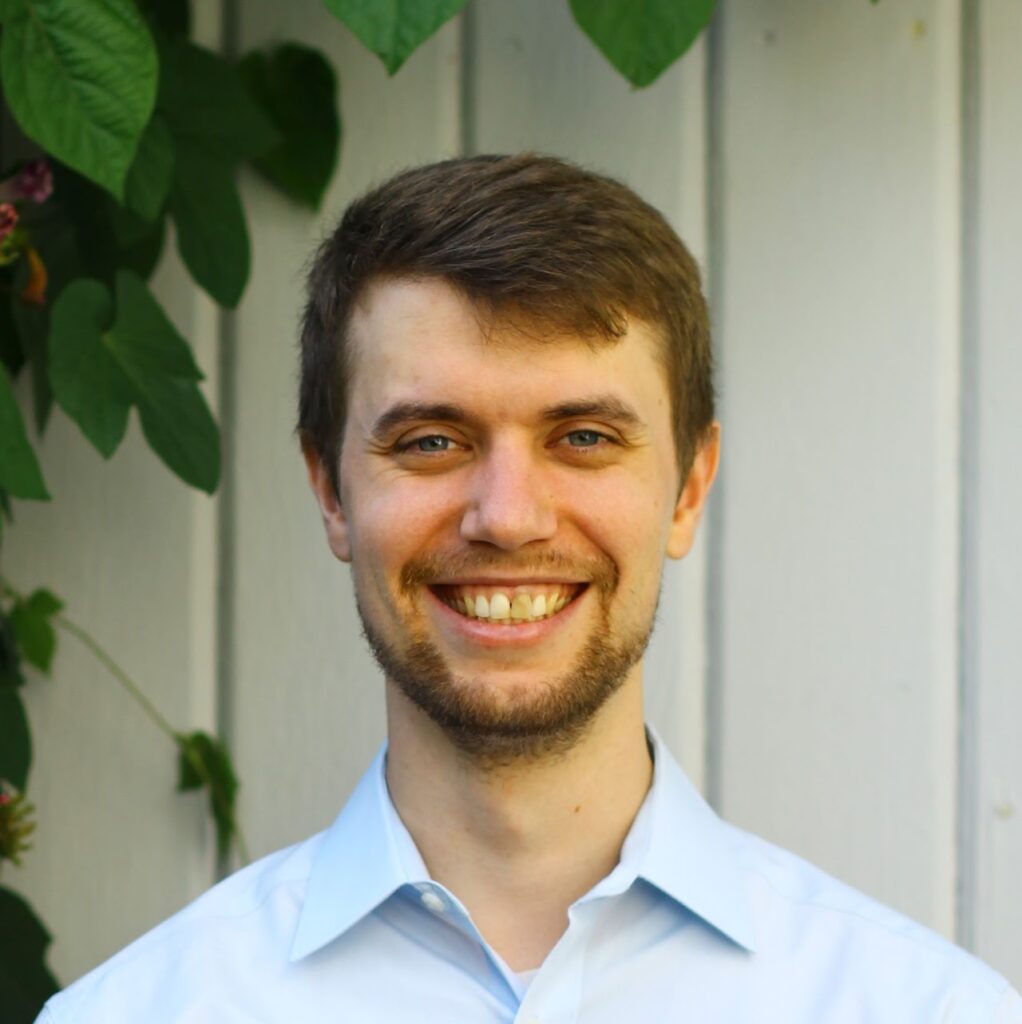
So, what was it like having Bento as a PhD adviser?
“He does not let you take it easy,” Miller said. “As a PhD, you’re not a student, you’re an apprentice and you don’t want to be apprenticed to someone who will go easy on you because you won’t then learn anything. Antonio does that well, but he’s also understanding that you’re also a person who has a life.”
Recently returned from a sabbatical, Bento is anxious to collaborate with political science, behavioral science and public policy faculty because he believes economics can’t exist in a vacuum if it’s going to be useful.
“One of the limitations of economics research is the fact that it often ignores political considerations,” he said. “Linking (political science models) with economic models that predict better kinds of fiscal systems should be the next frontier.”
